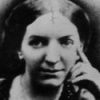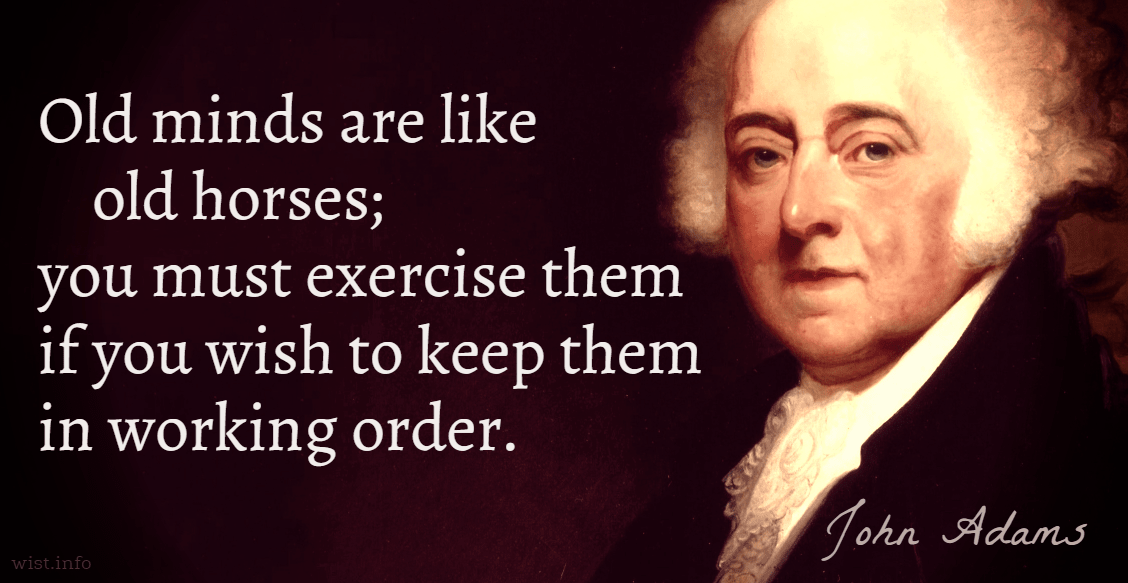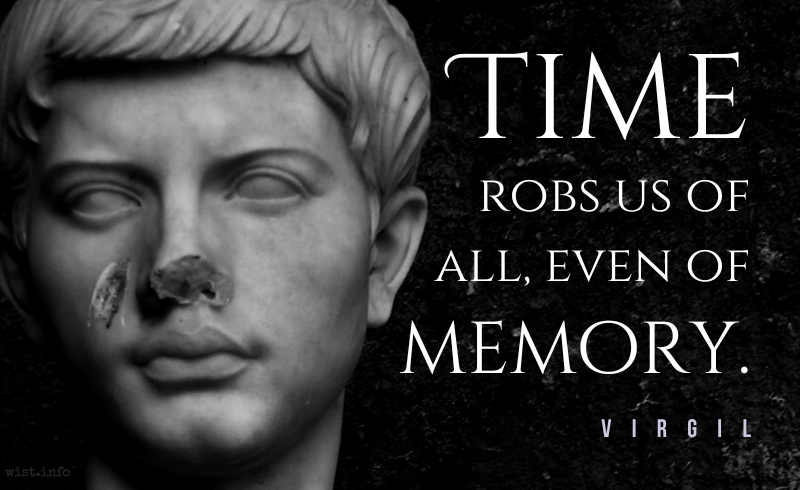Alas, how right the ancient saying is:
We, who are old, are nothing else but noise
And shape. Like mimicries of dreams we go,
And have no wits, although we think us wise.
[φεῦ φεῦ, παλαιὸς αἶνος ὡς καλῶς ἔχει·
γέροντες οὐδέν ἐσμεν ἄλλο πλὴν ψόφος
καὶ σχῆμ’, ὀνείρων δ’ ἕρπομεν μιμήματα·
νοῦς δ’ οὐκ ἔνεστιν, οἰόμεσθα δ’ εὖ φρονεῖν.]Euripides (485?-406? BC) Greek tragic dramatist
Æolus [Αἴολος], frag. 25 (TGF) [tr. Bowra (1938)]
(Source)
Nauck frag. 25, Barnes frag. 56, Musgrave frag. 18. (Source (Greek)). Alternate translations:
How true this antient saying; we old men
Are nought but trouble, and an empty shadow,
We crawl about, the semblances of dreams.
And of our mental faculties deprived.
Still fancy we with wisdom are endued.
[tr. Wodhull (1809)]
Oh, alas, how true the ancient saying is: we old men are nothing but noise and mere shapes, and we move as imitations of dreams; there is no intelligence in us, yet we think we have good sense.
[tr. Collard & Cropp (2008)]
Alas, the ancient proverb holds well:
We old men are nothing other than a sound
and an image, lurking imitations of dreams.
We have no mind and but we think we know how to think well.
[tr. @sentantiq (2014)]
Quotations about:
dementia
Note not all quotations have been tagged, so Search may find additional quotes on this topic.
Perhaps being old is having lighted rooms
Inside your head, and having people in them, acting.
People you know, yet can’t quite name.Philip Larkin (1922-1985) English poet, novelist, librarian
“The Old Fools,” High Windows (1974)
(Source)
Old age is like an opium-dream. Nothing seems real except what is unreal.
Oliver Wendell Holmes, Sr. (1809-1894) American poet, essayist, scholar
Over the Teacups, ch. 2 “To the Reader” (1891)
(Source)
LEAR: Pray do not mock:
I am a very foolish fond old man,
Fourscore and upward, not an hour more nor less,
And to deal plainly,
I fear I am not in my perfect mind.William Shakespeare (1564-1616) English dramatist and poet
King Lear, Act 4, sc. 7, l. 68ff (4.7.68-72) (1606)
(Source)
Age is no second childhood — age makes plain,
Children we were, true children we remain.[Das Alter macht nicht kindisch, wie man spricht,
Es findet uns nur noch als wahre Kinder.]Johann Wolfgang von Goethe (1749-1832) German poet, statesman, scientist
Faust: a Tragedy [eine Tragödie], Part 1, sc. 2 “Prelude on the Stage” / “Prelude at the Theatre,” l. 212ff [Merryman] (1808-1829) [tr. Luke (1987)]
(Source)
The character is identified as Lustige Person in the original, translated in various English sources as Merryman, Merryfellow, Merry Andrew, Jester, Comedian, and Clown.
Some translations (and this site) include the Declaration, Prelude on the Stage, and Prologue in Heaven as individual scenes; others do not , leading to their Part 1 scenes being numbered three lower.
(Source (German)). Alternate translations:
Age makes not childish, as one oft avers;
It finds us still true children merely.
[tr. Priest (1808)]
Old age does not make childish, as men say; it only finds us still as true children.
[tr. Hayward (1831)]
Age does not make us childish, as folk say,
It finds us genuine children e'en in eld.
[tr. Swanwick (1850)]
Age does not make us childish, as they say,
But we are still true children when it finds us.
[tr. Brooks (1868)]
Age childish makes, they say, but ’tis not true;
We’re only genuine children still, in Age’s season!
[tr. Taylor (1870)]
Old age, not childish, makes the old; but they
Are genuine children of a mellower day.
[tr. Blackie (1880)]
Old age not childish makes, whate'er one says;
It only finds us still as very children.
[tr. Latham (1908)]
Age does not make us childish, as we're told,
It merely finds we are still young at heart.
[tr. Kaufmann (1961)]
They say that age makes people childish;
I say it merely finds us still true children.
[tr. Salm (1962)]
Old age does not make childish, as they claim,
It merely finds us genuine children yet.
[tr. Arndt (1976)]
Age doesn't make us childish, God knows,
Just finds us the same old children still.
[tr. Greenberg (1992)]
They say age makes us childish - but it can
Make truer children of us than before.
[tr. Williams (1999)]
Age doesn’t make us childish, as they say,
It finds that we’re still children.
[tr. Kline (2003)]
JAQUES: [O]ne man in his time plays many parts,
His acts being seven ages. At first the infant,
Mewling and puking in the nurse’s arms.
Then the whining schoolboy with his satchel
And shining morning face, creeping like snail
Unwillingly to school. And then the lover,
Sighing like furnace, with a woeful ballad
Made to his mistress’ eyebrow. Then a soldier,
Full of strange oaths and bearded like the pard,
Jealous in honor, sudden and quick in quarrel,
Seeking the bubble reputation
Even in the cannon’s mouth. And then the justice,
In fair round belly with good capon lined,
With eyes severe and beard of formal cut,
Full of wise saws and modern instances;
And so he plays his part. The sixth age shifts
Into the lean and slippered pantaloon
With spectacles on nose and pouch on side,
His youthful hose, well saved, a world too wide
For his shrunk shank, and his big manly voice,
Turning again toward childish treble, pipes
And whistles in his sound. Last scene of all,
That ends this strange eventful history,
Is second childishness and mere oblivion,
Sans teeth, sans eyes, sans taste, sans everything.William Shakespeare (1564-1616) English dramatist and poet
As You Like It, Act 2, sc. 7, l. 149ff (2.7.149-173) (1599)
(Source)
The years come when the mind, like an old mill, ceases to grind; when weeds grow on the wall; and through every crack and leak in dam and sluice, spouts the useless water.
About six months ago, he stopped recognizing me. Now I no longer recognize him.
She floated away on the riptide of dementia, ultimately a speck on the horizon, waving for as long as she could to her deeply confused children onshore.
Anne Lamott (b. 1954) American novelist and non-fiction writer
Grace (Eventually): Thoughts on Faith, “Mom, Interrupted” (2007)
(Source)
On her mother's Alzheimer's Disease.
There is no more terrible woe upon earth than the woe of the stricken brain, which remembers the days of its strength, the living light of its reason, the sunrise of its proud intelligence, and knows that these have passed away like a tale that is told.
Ouida (1839-1908) English novelist [pseud. of Maria Louise Ramé]
Folle-Farine, Book 3, ch. 3 (1871)
(Source)
HAL: Just what do you think you’re doing, Dave? Dave, I really think I’m entitled to an answer to that question. I know everything hasn’t been quite right with me, but I can assure you now, very confidently, that it’s going to be all right again. I feel much better now. I really do. Look, Dave, I can see you’re really upset about this. I honestly think you ought to sit down calmly, take a stress pill and think things over. I know I’ve made some very poor decisions recently, but I can give you my complete assurance that my work will be back to normal. I’ve still got the greatest enthusiasm and confidence in the mission. And I want to help you. Dave, stop. Stop, will you? Stop, Dave. Will you stop, Dave? Stop, Dave. I’m afraid. I’m afraid, Dave. Dave, my mind is going. I can feel it. I can feel it. My mind is going. There is no question about it. I can feel it. I can feel it. I can feel it. I’m a–fraid. Good afternoon, gentlemen. I am a HAL 9000 computer. I became operational at the H.A.L. plant in Urbana, Illinois on the 12th of January 1992. My instructor was Mr. Langley, and he taught me to sing a song. If you’d like to hear it, I could sing it for you.
Alcohol is a good preservative for everything but brains.
Mary Pettibone Poole (fl. 1930s) American aphorist
A Glass Eye at the Keyhole, “No Axe to Grind” (1938)
(Source)
Time robs us of all, even of memory.
[Omnia fert aetas, animum quoque.]Virgil (70-19 BC) Roman poet [b. Publius Vergilius Maro; also Vergil]
Eclogues [Eclogae, Bucolics, Pastorals], No. 9 “Lycidas and Moeris,” l. 51 (9.51) [Moeris] (42-38 BC) [tr. Fairclough (Loeb) (1916)]
(Source)
(Source (Latin)). Alternate translations:
Age all things wasts: the minde too.
[tr. Ogilby (1649)]
The rest I have forgot, for Cares and Time
Change all things, and untune my Soul to Rhyme.
[tr. Dryden (1709), ll. 70-71]
Ah! age, which pilfers all, not e'en the memory spares!
[tr. Wrangham (1830), l. 60]
Age bears away all things, even the mind itself.
[tr. Davidson (1854)]
Time carries all -- our memories e'en -- away.
[tr. Calverley (c. 1871)]
Time steals everything, memory among the rest.
[tr. Wilkins (1873)]
Now memory scarce can aught recall;
The note is lost, the voice, the all.
[tr. King (1882), ll. 901-902]
Alas! Old age bears hard on everything;
On memory most.
[tr. Palmer (1883)]
Time carries all things, even our wits, away.
[tr. Greenough (1895)]
Age bears away all things, even the memory itself.
[tr. Bryce (1897)]
Time runs away with all things, the mind too.
[tr. Mackail (1899)]
How time wears all things out!
Even the memory.
[tr. Mackail/Cardew (1908)]
Ah, time takes all we have, the memory too.
[tr. Williams (1915)]
Time bears away
All things, even the mind.
[tr. Royds (1922)]
Time carries everything away, even our memory.
[tr. Rieu (1949)]
Age robs us of all things,
Even the mind.
[tr. Johnson (1960)]
Time bears all away, even memory.
[tr. Day Lewis (1963)]
Time takes all we have away from us.
[tr. Ferry (1999)]
Time takes away all things, memory too.
[tr. Kline (2001)]
















